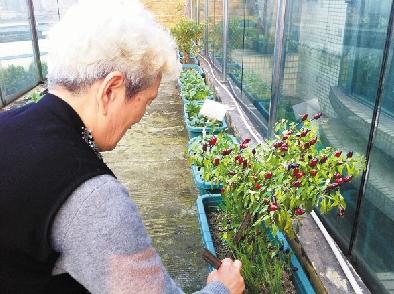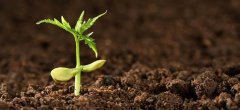Kitchen waste fertilizer utilization plan, kitchen waste organic fertilizer growing vegetables is environmentally friendly and healthy
With the advent of a new way to deal with kitchen waste, through the "thick soil planting method" to transform raw food waste and fallen leaves into plant available nutrients, not only solve the problem of raw food waste and the removal of rice straw, but also grow vegetables with zero detection of pesticides.
The garbage problem is becoming more and more serious, which also makes the government intend to invest in the budget to solve related problems. in addition to implementing resource recycling, counties and municipal governments are also trying to find more and newer methods, and even cooperate with enterprises to develop new technologies to turn "garbage into gold".
Take Hsinchu City as an example. Hsinchu City has about 4 tons of lettuce leftover food every day at the National Fruit and vegetable Market, which is a very important organic material, but at present, it is treated by burning. Jiang Shengren, director of environmental protection in Hsinchu City, believes that as long as it is combined with the planning of the construction of the farm, these raw kitchen leftovers can be reused and turned into valuable soil.
Chiang Sheng-Jen said that last year, the Environmental Protection Bureau promoted the edible landscape project and, in cooperation with the Taiwan Community Agricultural Association, conducted experiments through the working group on farmland and community granaries of the Association next to Hsinchu Air Force Base. We will further promote "community granaries" in non-metropolitan areas and try to solve the problem of the removal of raw food waste and reducing greenhouse gas and suspended particulate emissions through "thick soil planting".
He revealed that this year, the "Metropolis Land Project" will be further promoted. Capillary bed planting (wicking bed) vegetable boxes will be promoted in more communities, campuses and public areas, and communities will be promoted to join the ranks of green vegetable gardens, making use of street corner space to create edible landscapes and grow peace of mind and health food.

- Prev
What can rice stalks do to make egg boxes? The waste of mushroom fungus turns into good soil for growing strawberries.
How can agricultural environmental protection be done? The mountains of rice straw and rice husks and the headache of cultivating mushroom space bag waste can also be returned to agriculture to play a second role! From now to April 24, the Zhi Nong Museum of Huabo Waipu Park in Taichung is now holding the "shared Nature".
- Next

The growing conditions required for green plants planted in flower beds, the influence of soil ph on crops
The key to successful and problem-free gardening is choosing plants that best suit your garden conditions. Plan your home garden to match the most important features of your property-sun and soil. Plants rely on light as a source of energy for growth, flowers and fruits. Garden bed reception
Related
- A course of planting techniques and methods on how to grow carrots
- How to plant the latest tulips?
- Is it better to pick tea in the morning or in the afternoon? When is the best time for tea to be picked? what is the third or fifth tea?
- Launch Yuanxiao Happy combination Haocha + Tea Yuan healthy Taste
- Penghu Tourism "Fireworks 20 Parade with You"
- 2022 West Lake Happiness holds "Digital Revitalization Voucher" and draws iphone13 and laptop.
- Banqiao Fuzhou social houses are designed to change start-up combined with police elimination to create a safe and livable environment
- The convenient measure of "mechanical weeding" in Xinbei has been abused and the Agriculture Bureau has imposed heavy penalties on the illegal land consolidation.
- Changgeng University Joins Hands with Four Memory Factories to Rescue Memory Talent Shortage
- The list of Taiwan's top 100 MVP managers is listed by the Director-General of the Farmers' Association of Sanxia District.

